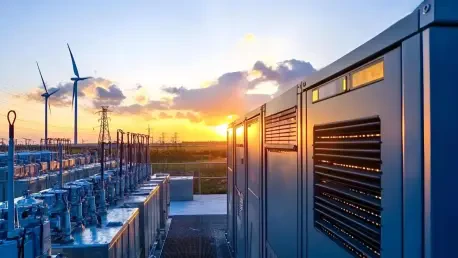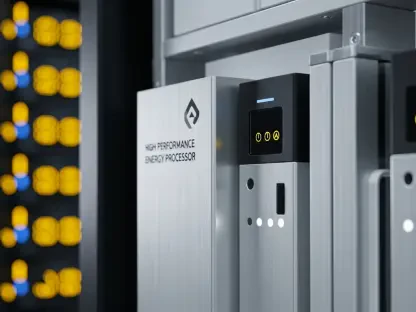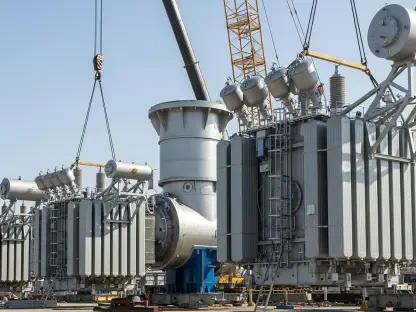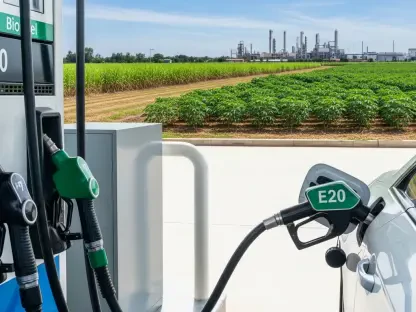In today’s conversation, we’re diving into the intricate balance between advancing clean energy initiatives and ensuring environmental safety, particularly in small communities. Our expert, Christopher Hailstone, has vast experience in energy management and renewable technology and is here to share insights on the complex issues surrounding a significant Massachusetts clean energy bill. This legislation has stirred local debates, especially in towns like Oakham, where residents are concerned about both the environment and their rights.
Can you explain your position on the Massachusetts clean energy bill regarding battery energy storage systems?
The Massachusetts clean energy bill is quite forward-thinking, aiming to integrate more renewable energy into the grid. However, the aspect allowing developers to bypass local zoning laws to install large-scale battery energy storage systems is troubling. It essentially overrides the community’s ability to make science-based decisions that protect their resources, creating tension between state intents and local realities.
How do you feel the bill affects local zoning laws in small towns like Oakham?
In towns like Oakham, the bill poses a significant challenge to local governance. These communities meticulously crafted zoning bylaws to safely accommodate clean energy technologies. Yet, the state’s mandate could nullify these efforts, compromising local input and potentially ignoring unique environmental sensitivities that the locals understand best.
What are the main concerns of Oakham residents about the proposed battery storage facility?
The primary concern is the potential risk to the water supply and general safety. The proposed site is a former junkyard, which still houses hazardous materials. Residents are anxious about placing highly volatile lithium-ion batteries in such an area, due to the risk of contamination and fire, which could have dire consequences for the surrounding nature and communities.
How does the proposed site for the battery storage affect the local environment and water supply?
The site borders a vital watershed supplying water to millions. Disturbances or accidents involving battery storage could lead to contamination, harming both the local environment and a significant public water source. The area’s current contamination levels are already alarming, and introducing battery storage adds a layer of environmental risk that could exacerbate existing issues.
What specific risks do you associate with placing lithium-ion batteries on a contaminated site?
Lithium-ion batteries are known for their fire risk and potential to release toxic chemicals if damaged. Placing them on a contaminated site can increase the likelihood of chemical reactions from existing pollutants, potentially leading to uncontrollable fires or explosions. This risk is heightened by the site’s porous nature, allowing chemicals to seep into the water system.
Could you share examples of incidents involving battery storage systems that raise concern?
There are numerous instances worldwide where lithium-ion battery storage systems have caught fire or exploded, requiring specialized teams and significant time to control. High-profile incidents in Arizona and South Korea come to mind, which highlighted both the challenges and the unpreparedness of communities in dealing with such situations.
How is Oakham equipped to handle potential safety incidents associated with battery storage facilities?
Unfortunately, like many small towns, Oakham lacks the firefighting resources and emergency response infrastructure needed to deal with large-scale lithium-ion battery incidents. They would rely heavily on mutual aid from neighboring towns, which could be delayed, thereby increasing the potential for extensive damage.
How does the Massachusetts state government’s approach challenge local governance in your view?
The state’s approach seems to impose a unilateral model of governance, where economic and political motivations could overshadow scientific assessments and local voices. This method challenges the autonomy of towns that strive for a tailored approach to balancing clean energy and community safety, ultimately dismissing local expertise and concerns.
What role does theACORNS.org play in addressing these concerns?
theACORNS.org serves as a critical voice for Oakham, advocating for a balance between energy innovation and preserving local safety. By uniting residents, they aim to ensure that the community’s input is valued and included in the decision-making process. They bring scientific and environmental concerns to the forefront, challenging policies that might otherwise ignore these vital aspects.
How are you engaging the broader Massachusetts community in this issue?
Engagement happens through education and advocacy. By organizing forums, workshops, and discussions, we aim to inform the broader Massachusetts community about potential risks and the importance of local perspectives in clean energy projects. This engagement catalyzes a deeper understanding and wider support for policies that integrate both environmental and public health concerns.
How do you respond to claims of NIMBYism regarding opposition to the battery storage project?
Such claims oversimplify the issue. This opposition isn’t rooted in a refusal to adapt to clean energy but in a demand for responsible and scientifically informed development practices. The emphasis is on safety, environmental stewardship, and meaningful local participation in the planning process, rather than a blanket rejection of technological progress.
What is your vision for a balanced approach to clean energy and community safety?
A balanced approach should integrate robust scientific analysis, prioritize environmental health, and incorporate local decision-making. It requires policies that not only aim at clean energy but also ensure that innovations do not compromise community safety or the environment. By fostering transparent dialogue and community partnerships, we can achieve sustainable progress that respects both people and the planet.
In what ways do you believe small towns can contribute to the clean energy movement while ensuring environmental safety?
Small towns are uniquely positioned to pilot innovative clean energy solutions tailored to local conditions. By leveraging their close-knit community structure, they can effectively test, monitor, and iterate on new technologies, ensuring safety and efficiency. Their contributions can serve as models for other regions, showing that progress does not have to come at the expense of environmental protection.
How do you propose state policies should change to better include local input in clean energy projects?
State policies should mandate meaningful community consultation during the planning phases of energy projects, rather than allowing for bypasses that ignore local zoning laws. Mechanisms for mediation should also be established, providing towns with means to negotiate terms that best suit their environmental contexts and community needs, ensuring a genuine collaboration between state and local bodies.
Why do you believe it’s important for clean energy initiatives to be grounded in both science and democracy?
Grounding initiatives in science ensures that decision-making is informed by empirical data and environmental realities, preventing unintended consequences. Democracy ensures that the voices of those directly impacted are heard and valued. This dual grounding provides comprehensive solutions that are technically sound and socially equitable, leading to sustainable and widely supported energy transitions.









